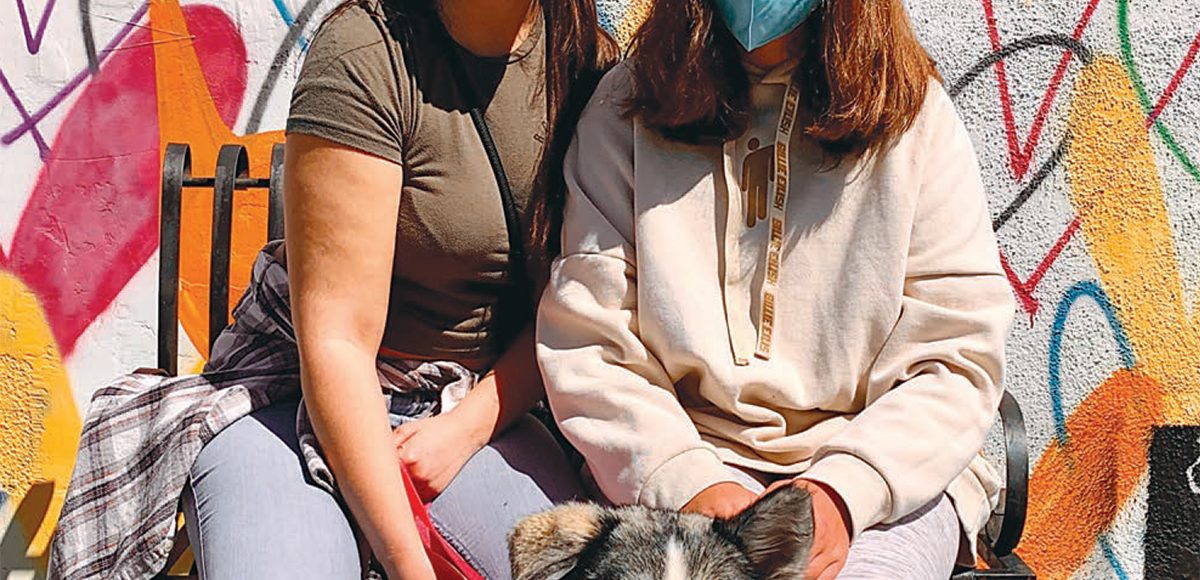Now that everyone is staying inside their home to curb the spread of COVID-19, adoptable animals are receiving an outpouring of attention as never before.
Los Angeles Animal Services (LAAS) Public Information Director Agnes Sibal-von Debschitz told the Courier that as a result of the “amazing response” from people willing to adopt and foster shelter pets in the wake of the pandemic, the department had added staff to process the applications faster.
LAAS reported that last month over 2,232 animals made it out of county shelters, including 919 (258 cats, 20 kittens, 585 dogs, and 56 rabbits) that found new homes. Amanda Foundation President Teri Austin told the Courier that adoptions at the Beverly Hills-based rescue were up by 20 percent.
“There’s no shortage of dogs that need to be adopted,” she said. “I have to say, the dogs are loving people being at home.”
“It’s a silver lining type of thing because we have gotten so many wonderful foster offers. Many of them have actually ended up adopting their fosters so that makes it easier for us to take in other dogs” said Ellen Ballon Dante, Executive Director of Deity Animal Rescue on Doheny Drive.
Pet Rescue Pilots CEO Julian Javor underscored how extraordinary it is that a life-threatening virus was able to catalyze people’s willingness to foster/adopt a pet during this time. Until the Safer at Home Order went into effect last month, Javor, who also chairs the Beverly Hills Parks and Recreation Commission, had spent the past two-and-a-half years flying pets out of California kill shelters to the Pacific Northwest and into Canada during weekends in his Cessna 414. He has helped save 531 dogs, cats and even a goat, including two dogs he adopted, during the course of his rescue flights.
“What I think we’ve all learned here is that it is in fact pets that give us companionship,” Javor told the Courier. “It’s sad that it’s taken a virus for us to realize their value.”
In addition to helping stave off feelings of loneliness, pets offer a bevy of health benefits.
“Studies have shown that the bond between people and their pets can increase fitness, lower stress, and bring happiness to their owners,” Sibal-von Debschitz said. “Some of the health benefits of having a pet include lowering blood pressure, decreasing feelings of loneliness, increasing opportunities for exercise and outdoor activities, and increasing opportunities for socialization.”
She further underscored that at this time there is “no evidence” that pets become ill with COVID-19 or that they spread it to other animals or humans.
Austin said that while there appeared to potentially be cross-contamination with cats, “there hasn’t been any documented cases of any person getting the disease from a dog or cat.” A tiger at the Bronx Zoo did test positive for COVID-19, in addition to reports of two cats in Belgian testing positive for the virus.
Austin emphasized that this is a singular time, in that owners are at home and able to take multiple walks a day with their dogs. She recommended that people keep in mind what will happen when the stay-at-home order is lifted.
“We want people to realize even if they’re going to be home 24-7 for the next two to three months, the dog’s not going to understand that they’re going to be gone from their home eight to 10 hours a day in the future,” she said. “A dog is like a small child. You can’t get them used to something and then abruptly change it.”
Austin said the fostering situation works particularly well for animals that are sick, nursing mothers, or those who are recuperating from surgery. She highlighted her newest office mate, Hamlet, a handsome well-mannered 18-year-old diabetic cat not yet ready to “shuffle off this mortal coil” who could prove a welcome companion. In addition, with kitten season on the horizon, she said that shelters would be in need of those willing to take them in. For animals with special needs, Austin said that the foster parents receive all needed medicines.
Sibal-von Debschitz said that LAAS was actively looking for people to foster or adopt medium and larger dogs.
Given the social distancing protocols now in place, the pandemic has completely changed how people adopt and foster animals, with appointments now required, in addition to various other safety measures to keep staff and the public from getting exposed to the virus. In fact, on April 13 LAAS closed its West Valley and North Central Animal Services Centers, although its four other facilities remain open.
At the Amanda Foundation, which is also a full service hospital, after the would-be new owner has interacted with the animal in the foundation’s front yard, a staff member will then perform a virtual home safety check (as opposed to in-person) and an in-person yard check while wearing a mask and gloves. “Since we’re only doing outside the home, it’s very easy for us to practice social distancing,” Austin said.
“When everything happened with the quarantine, it really made us realize that there couldn’t be a better time,” said Danny Carney, who together with his wife Maura Sullivan adopted a Cavapoo (Poodle/Cavalier King Charles Spaniel) named Wink (for his one eye) on April 15 from the Amanda Foundation.
“To me they’re like a match-maker,” Mark Hess said in describing the Amanda Foundation, which helped pair him and his wife, Miriam, with Koda, a petite five-year- old German Shepherd. “They make sure that a dog is a good match for the family.”
Those looking to adopt or foster, can visit available animals online at:
www.laanimalservices.com/adopt







